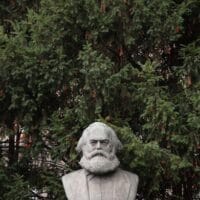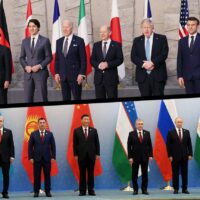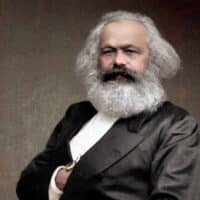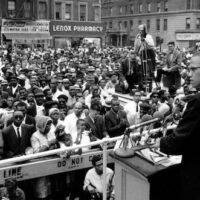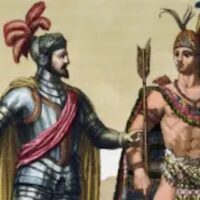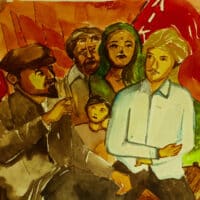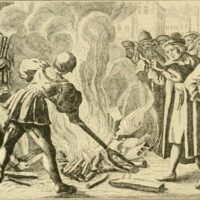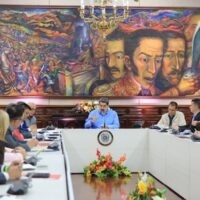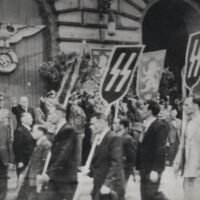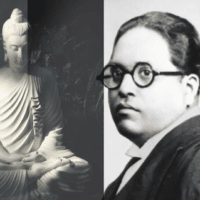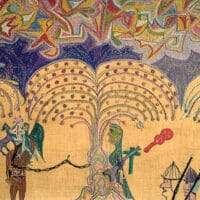-
Hugo Chávez didn’t die, he multiplied!
Ten years since his passing, the legacy of Commander Hugo Chávez lives on in the people of Venezuela and the world.
-
How Swiss politicians dismantle Swiss neutrality
The Swiss Confederation—the “Confoederatio Helvetica”, hence the CH on the cars—has been historically neutral since the Congress of Vienna in 1815.
-
Kohei Saito: ‘Marx in the Anthropocene: Towards the Idea of Degrowth Communism’
In 2017, Japanese Marx scholar Kohei Saito published ‘Karl Marx’s Ecosocialism’, which won the Isaac Deutscher Memorial Prize the following year.
-
West is out of touch with rest of world politically, EU-funded study admits
A study by the elite EU-funded European Council on Foreign Relations found the West is out of touch politically with the rest of the world. Most people in China, India, and Türkiye see Russia as an important ally, and they want multipolarity, not continued “American global supremacy”.
-
Śūnyatā and Karl Marx
About a year and a half before the publication of Karl Marx’s Das Kapital, Erster Band (1867), there appeared in two sentences within two of his letters, a particular view of the term शून्यता / Śūnyatā: rendered in his own English, as nothingness.
-
Why embracing anti-colonialism made Malcolm a marked man
Malcolm X was a legendary revolutionary who is still loved by millions of people. The anniversary of his assassination is an opportunity to reflect on his impact.
-
European parliament member Clare Daly on Nordstream pipeline attack
European parliament member Clare Daly on Nord stream pipeline attack
-
The agony of liberal Zionism
Among my Israeli friends there used to be many liberal Zionists. They sought social justice, supported peace initiatives with the Palestinians, and otherwise believed in Israel’s progressive roots. Indeed, in its pioneer years, Zionism, while engaged in colonization of Palestine, was associated with ideas of collective endeavour and equality.
-
Lula flirts with Montezuma
Montezuma was the last de facto emperor of the Aztecs. It is known that during his reign the Aztec Empire reached its peak in terms of expansionist activity, political reforms and infrastructure construction
-
The question of the civilizational state: an interview at Guancha with Vijay Prashad
Following the interviews with Zhang Weiwei, director of the China Institute at Fudan University, and Martin Jacques, former senior fellow of the Department of Politics and International Studies at Cambridge University, Guancha.cn (观察者网) invited Vijay Prashad, executive director of the Tricontinental: Institute for Social Research, to continue the discussion on the “civilizational state”.
-
Labour leader finally appears on a picket line…
… in the form of a life-size cardboard cut-out.
-
Reject anti-intellectualism
A disingenuous trend is reemerging, bastardizing concepts of “accessibility” to attack and suppress radical efforts at political education. The focus on consistent ongoing political education is shot down as disconnected from the needs of the people.
-
Popular power legislation to be revised as communards demand more protagonism
Commune spokespeople urged the Maduro government to boost grassroots efforts against “the metabolism of capital.”
-
History of Fascism in Ukraine Part II: The OUN during World War 2, 1941-1945
The Organization of Ukrainian Nationalists or OUN is the most successful post-war fascist group.
-
The American Jewish war over Zionism can begin
Zionism destroys everything in its path. It has corrupted every major American Jewish organization. And Netanyahu’s return allows American Jews to acknowledge this.
-
Ambedkar, Buddhism and Dalit liberation
Events of the last few days indicate AAP and BJP worship Ambedkar purely for electoral gains and not from commitment to his ideas.
-
‘We need a Labor Movement that’s a lot more militant and willing to challenge the status quo’
Joe Burns, director of collective bargaining with the CWA-AFA union, discusses his new book, “Class Struggle Unionism, and the importance of a militant labor movement.”
-
Global ruling classes welcome fascist-led government in Italy
The Italian general election was a historic win for the far right.
-
Lemons, mimosas, and Stalin’s shovel
The only Russian leader in a thousand years who was a genuine gardener and who allowed himself to be recorded with a shovel in his hand was Joseph Stalin (lead image, mid-1930s). Compared to Stalin, the honouring of the new British king Charles III as a gardener pales into imitativeness and pretension.
-
Ten Theses on Marxism and Decolonisation
The Cuban Revolution came about in a country subordinated to the U.S. from all points of view. Although we had the façade of a republic, we were a perfect colony, exemplary in economic, commercial, diplomatic, and political terms, and almost in cultural terms.



